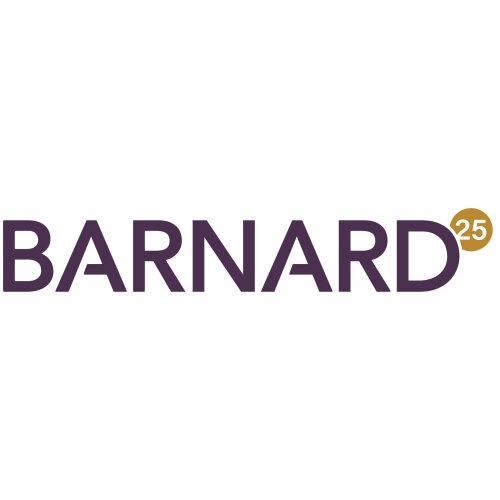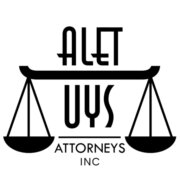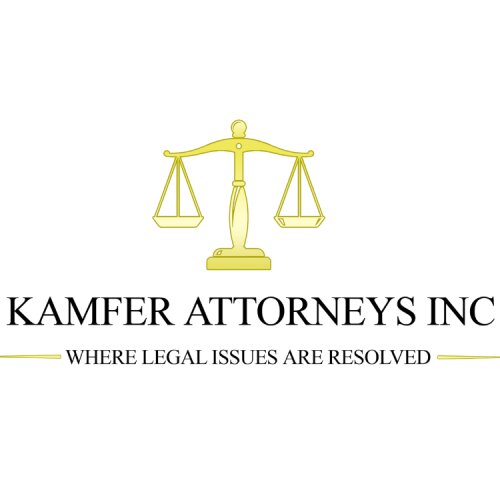Best ADR Mediation & Arbitration Lawyers in Pretoria
Share your needs with us, get contacted by law firms.
Free. Takes 2 min.
List of the best lawyers in Pretoria, South Africa
South Africa ADR Mediation & Arbitration Legal Articles
Browse our 1 legal article about ADR Mediation & Arbitration in South Africa written by expert lawyers.
- Resolving Cross-Border Commercial Disputes in South Africa
- Mandatory Consideration: Uniform Rule 41A requires all litigants in the South African High Court to consider mediation before proceeding to trial, making it a standard step in cross-border disputes. Enforceability: Settlements reached through mediation can be made an order of the court, giving them the same legal weight and enforcement... Read more →
About ADR Mediation & Arbitration Law in Pretoria, South Africa
Alternative Dispute Resolution (ADR) in Pretoria, South Africa, encompasses mechanisms like mediation and arbitration to resolve conflicts outside the courtroom. These processes are valued for their efficiency, confidentiality, and ability to preserve relationships. Mediation involves a neutral third-party facilitator who helps disputing parties reach a consensual agreement. Arbitration, on the other hand, is more formal, where an arbitrator's decision is usually binding. Both techniques are underpinned by South African legal standards to ensure fairness and justice.
Why You May Need a Lawyer
While ADR is designed to be less formal than courtroom litigation, there are scenarios where legal advice is beneficial:
- Complex disputes: In cases involving intricate legal issues or substantial stakes, a lawyer can clarify complicated matters and determine the best approach.
- Professional guidance: Lawyers can offer strategic advice on choice of arbitrators, drafting settlement agreements, and ensuring fair arbitration clauses.
- Conflict of interest: When conflicts arise regarding neutrality or fairness, a lawyer evaluates and mitigates potential biases in ADR proceedings.
- Legal documentation: Lawyers assist in the proper preparation of submissions, evidence compilation, and understanding legal implications of ADR outcomes.
Local Laws Overview
The legal framework for ADR in South Africa is largely governed by the Arbitration Act 42 of 1965 and the subsequent amendments, which provide a structure for arbitration procedures. The Court Annexed Mediation Rules, introduced as part of the Rules Board for Courts of Law, governs mediation processes. Additionally, the Labour Relations Act governs arbitration in employment disputes. These laws ensure that mediation and arbitration are conducted transparently, with respect for legal protocols to promote equitable settlements.
Frequently Asked Questions
What is the main advantage of using ADR in Pretoria?
ADR processes are generally faster and more cost-effective than traditional litigation and are conducted in a confidential setting, which can preserve relationships and enable more creative solutions.
Is an arbitration award enforceable in court?
Yes, an arbitration award is binding and enforceable in the same manner as a court judgment in South Africa, provided it complies with legal standards.
Can I have a lawyer represent me in ADR proceedings?
Yes, parties can be represented by lawyers during ADR processes, which can provide significant benefits in terms of legal guidance and advocacy.
What types of disputes are suitable for ADR?
ADR is suitable for a wide range of disputes, including commercial, employment, consumer, and family matters. However, it is less appropriate for criminal cases or situations requiring legal precedent setting.
How confidential are ADR proceedings?
Mediation is inherently confidential, and arbitration can be private, subject to the agreement of the parties involved. Confidentiality clauses are often included to ensure shared information remains protected.
What happens if mediation does not result in a settlement?
If mediation fails, parties can still pursue arbitration or litigation. Mediation does not impinge on the right to seek legal remedies via other channels.
How do I select an arbitrator or mediator?
Arbitrators and mediators can be chosen based on their expertise and experience in the dispute's area, along with recommendations and registered lists of recognized judicial figures.
Are ADR proceedings formal or informal?
Mediation is informal and allows for more flexible discussions, whereas arbitration is somewhat formal, resembling a court process but with less rigidity.
Can I appeal an arbitration decision?
Arbitration awards are typically final, with limited grounds for appeal, such as procedural errors or evidence of bias. Appeals require substantial justification.
Do I need to be present at ADR sessions?
While not always mandatory, personal presence can facilitate more constructive discussions and negotiation, especially in mediation settings.
Additional Resources
- South African Arbitration Foundation: Offers resources and guidelines on arbitration processes.
- The Association of Arbitrators (Southern Africa): Provides support, training, and expertise in arbitration proceedings.
- Law Society of South Africa: Assists with legal advisory and representation services.
- Community Mediation Centres: Facilitate mediation services, often free or at a low cost.
- Pretoria Society of Advocates: Provides access to qualified advocates who specialize in ADR.
Next Steps
If you require legal assistance in ADR mediation and arbitration in Pretoria, South Africa, consider the following steps:
1. Consult a Lawyer: Engage a legal professional specializing in ADR to gain insights and formulate a strategy.
2. Gather Documentation: Collect all relevant documents and evidence to support your case or discussions.
3. Select Appropriate ADR Service: Determine whether mediation or arbitration best suits your needs, based on the nature of the dispute.
4. Prepare for the Process: Ensure readiness for any meetings or hearings, and discuss expectations with your lawyer.
5. Proceed with Openness: Approach the ADR process with a willingness to negotiate and find amicable solutions.
Lawzana helps you find the best lawyers and law firms in Pretoria through a curated and pre-screened list of qualified legal professionals. Our platform offers rankings and detailed profiles of attorneys and law firms, allowing you to compare based on practice areas, including ADR Mediation & Arbitration , experience, and client feedback.
Each profile includes a description of the firm's areas of practice, client reviews, team members and partners, year of establishment, spoken languages, office locations, contact information, social media presence, and any published articles or resources. Most firms on our platform speak English and are experienced in both local and international legal matters.
Get a quote from top-rated law firms in Pretoria, South Africa — quickly, securely, and without unnecessary hassle.
Disclaimer:
The information provided on this page is for general informational purposes only and does not constitute legal advice. While we strive to ensure the accuracy and relevance of the content, legal information may change over time, and interpretations of the law can vary. You should always consult with a qualified legal professional for advice specific to your situation.
We disclaim all liability for actions taken or not taken based on the content of this page. If you believe any information is incorrect or outdated, please contact us, and we will review and update it where appropriate.
















